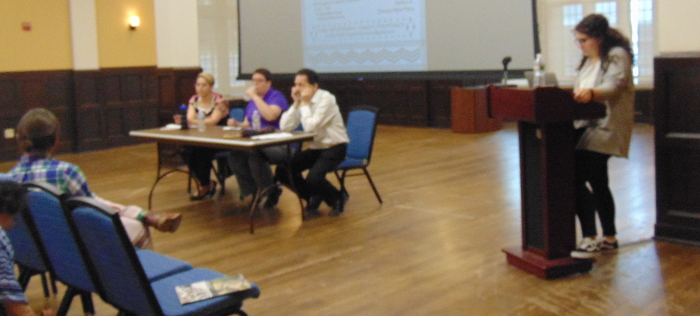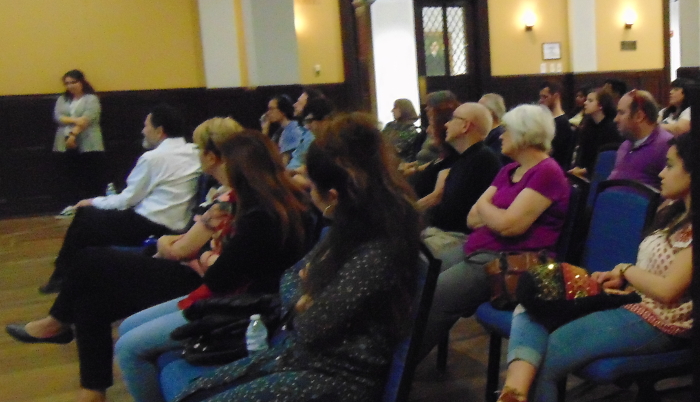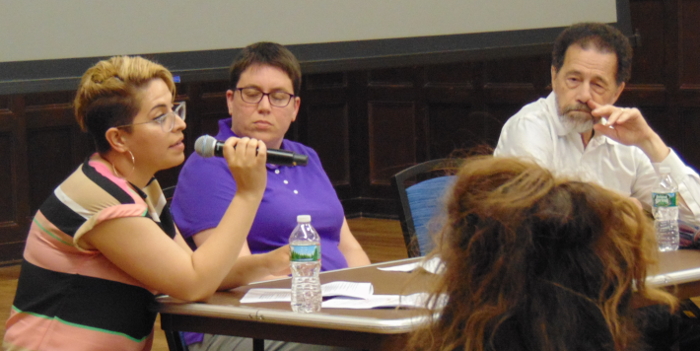
5 May 2018

University of Pennsylvania presented a discussion on BDS (Boycott, Divestment and Sanctions) on Saturday. The question that Dr. Lawrence Davidson, retired professor of Middle East history at West Chester University, tackled was the justification given by the head of the Philadelphia Orchestra for playing in Israel, that bringing a cultural good, in this case classical music, can have a positive impact on the political situation in Israel. Dr. Davidson argued that this didn't make a whole lot of sense. The political impact of having the Philadelphia Orchestra play in Israel is essentially that the US approves of Israel's policy towards Palestinians. If Israel wants to fire live ammunition at Palestinians in Gaza that are taking part in what they call "The Great Return March," playing classical music in Israel does nothing to convince anyone in Israel that killing people on their Southern border is wrong.

Hannah Mermelstein is a volunteer organizer with Adalah-NY, the New York Campaign for the Boycott of Israel. It is not a traditional economic boycott that seeks to immiserate the population. It's instead trying to shame Israel into changing it's policy. She didn't bring any counter-examples of when such a policy is ineffective, but I recalled that the comedian Jon Stewart tried to shame Iran with the movie "Rosewater." It was a decent film that made about $5 million, but it had no effect on Iranian policy because Iranian leaders just don't care if people think they're terrible. Israel, on the other hand, cares a great deal about what the world, Western powers and the US think of them. That's why BDS seeks to send a message using culture to effectively say "Shame on you!" Mermelstein's positive example was Leonard Cohen. Cohen played in Israel anyway, but public pressure on him not to do so brought a great deal of attention to BDS as there was a good deal of public back-and-forth about the morality of his playing in Israel.

Karima Saab, a Palestinian American that represents Philly BDS, spoke about being a Palestinian and slowly learning about her heritage while growing up. She was baffled when someone asked her whether she was "48 or 67." What she learned was that there were two large waves of migration from Palestine. One of her parents was part of the 1948 exodus of Palestinians from what is now Israel and the other was part of the 1967 wave, when Israel occupied the West Bank. She related how she was arguing with someone who didn't realize she was Palestinian and who probably imagined someone sinister and swarthy-looking with brown skin. The person was startled when Karima, who appears to a standard blond American white woman, said what her ethnicity was. C-J Allies had a film about the history of Palestinians who tried to live within Israeli borders called "The Stones Cry Out." This film covered many details of what it was like to live as non-Jewish people within Israel's borders.